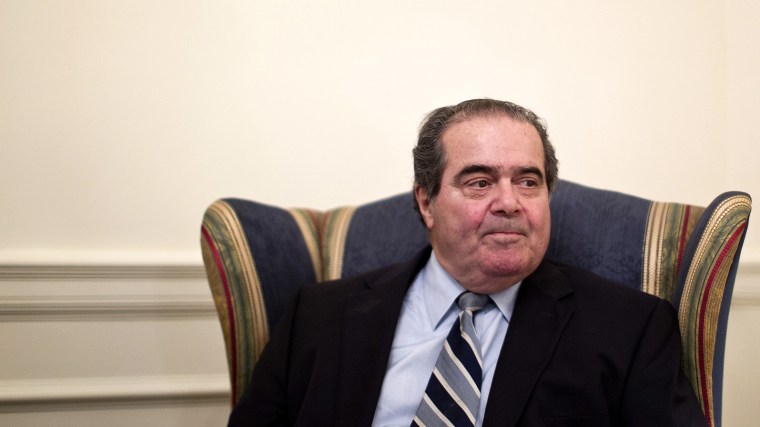There were quite a few cases Supreme Court Justice Antonin Scalia heard before his recent death, and the rulings in those cases would have been shaped, at least in part, by his judgment. His passing, however, changes the nature of the process -- as we recently
discussed, no decision is an official ruling of the Supreme Court until it's officially announced.
There may have been some important 5-4 rulings on the way, but we'll never know for sure. Those decisions will not be released.
At least, that's how the Supreme Court operates. As
The New Republic noted, some on the right apparently want Supreme Court Chief Justice John Roberts to play fast and loose with the legal process.
It began over the weekend with a lawyer in Arizona who told a local political talk show that Scalia should effectively cast a vote from the grave on outstanding cases before the Supreme Court. Incredibly, the idea was echoed by Heritage Foundation fellow Hans van Spakovsky, the patron saint of voter ID laws that prevent living people from voting.
As Right Wing Watch
discovered, Hans van Spakovsky, one of the nation's more outrageous
voter-fraud crusaders, told a radio show this week, "I think the chief justice has an absolute obligation to give credit to Scalia's vote in those cases that have already been decided, even if he didn't write his opinion yet, because they know how he would have voted."
If I didn't know better, I might think van Spakovsky was encouraging John Roberts to commit a Supreme Court version of voter fraud -- allowing a dead man to cast a vote based on the dubious assumptions of some of his allies.
And speaking of trying to know what Scalia might have wanted, ThinkProgress had an
interesting piece this week noting Scalia's concerns about an eight-member court.
In 2004, the Supreme Court heard a case from the Sierra Club challenging the secrecy of the Bush administration's Energy Task Force, which was chaired by Vice President Dick Cheney. The Sierra Club petitioned Scalia to recuse himself, citing his personal relationship with Cheney. They had, famously, gone duck-hunting together. Scalia rejected the request and, in so doing, explained the adverse impact of that losing a justice has on the court.
Obviously, the late justice was describing a dynamic in which the court had eight voting members due to a recusal, as opposed to a death, but the substantive dynamic is effectively the same thing. Having eight justices puts the court in a position in which it may be "unable to resolve" significant legal issues, Scalia said at the time.
The "functioning" of the institution, he added, is "impaired" when there are only eight voting members.
For those actually concerned about Scalia's wishes, it's something to keep in mind.
